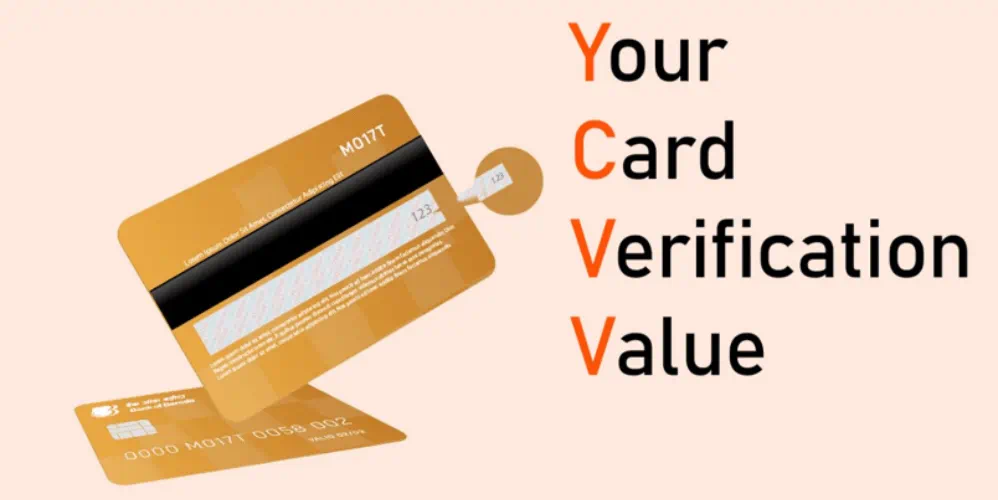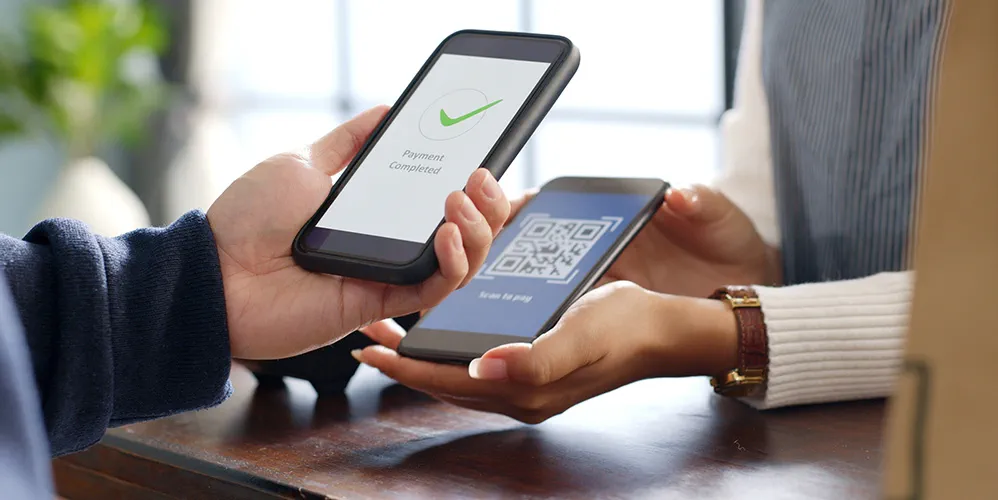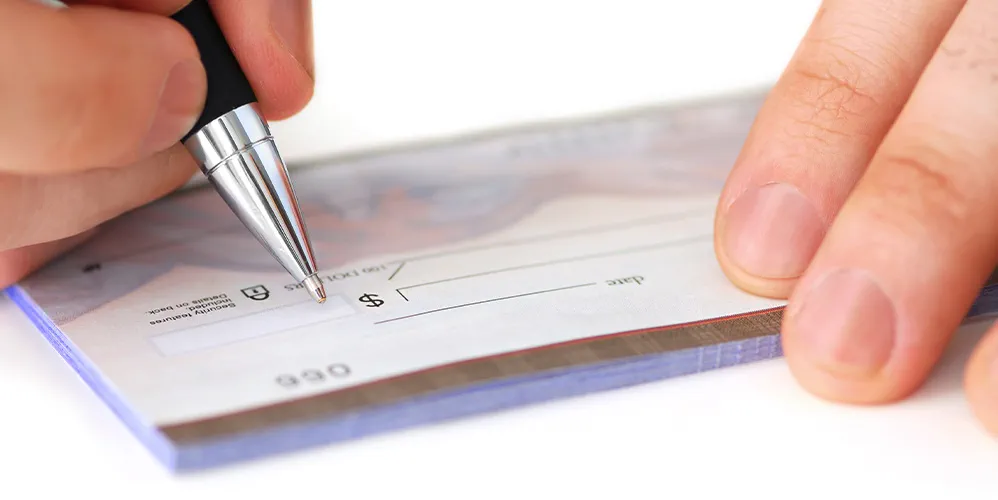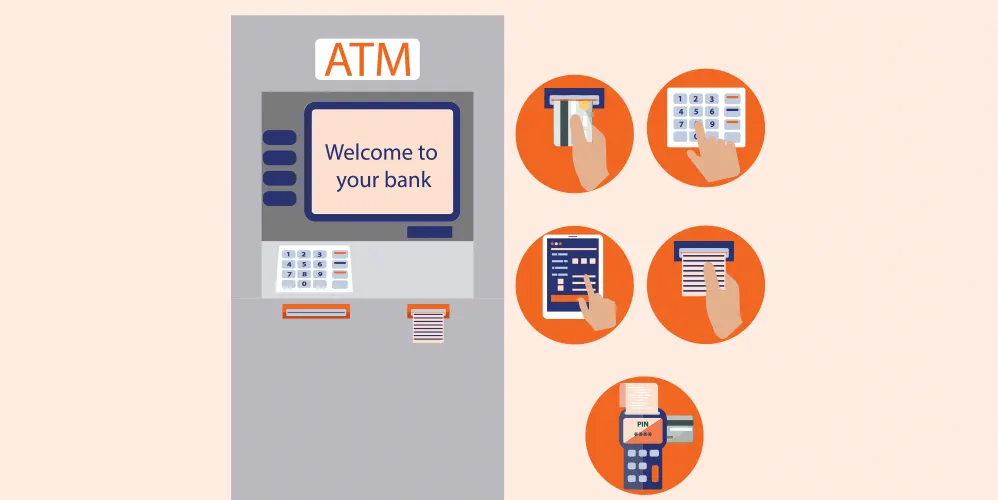
विभिन्न प्रकार के डीमैट खाते
24 अगस्त 2023

Table of Content
Different types of specific demat account are suitable for different types of investors. Resident Indians use regular demat accounts while non-resident Indians can choose between repatriable demat accounts and non-repatriable demat accounts.
Investors can open Demat Account with depository participants. For example, Bank of Baroda is a depository participant of both the National Securities Depository Limited (NSDL) and Central Depository Services Limited (CDSL). It offers investors demat accounts and depository services on behalf of both.
Different Types of Demat Accounts in India
Choosing the correct type of demat account is crucial for investors to manage their securities and effectively align with specific investment requirements. With various options available, such as the regular demat account, repatriable demat account, non-repatriable demat account, and Basic Service Demat Account (BSDA), investors must evaluate their needs and consider relevant factors before deciding.
Let us explore the various types of demat accounts that cater to investors' specific needs and preferences.
Regular Demat Account
The regular demat account is the most common demat account used by Indian residents. It allows investors to hold and trade equity shares and other securities electronically. A standard demat account must be linked with a trading account to engage in activities like Futures and Options. This account has an annual maintenance charge (AMC), which varies among service providers. In response to the needs of small investors, SEBI introduced the Basic Services Demat Account (BSDA). It minimizes or eliminates the AMC based on the investment size, making it more affordable for individuals with minimal holdings.
BSDA - Basic Service Demat Account
The Basic Service Demat Account (BSDA) is designed to make demat account services accessible and affordable for small investors. It comes with certain limitations and concessions to cater to the needs of individuals with fewer holdings. For example, if the value of the securities in a BSDA does not exceed ₹2 lakhs, the investor can enjoy reduced maintenance charges. This account is ideal for those with a smaller investment portfolio or new to the investing world. For instance, a college student interested in investing a small amount in stocks or mutual funds would find the BSDA would a cost-effective option.
Repatriable Demat Account
Designed exclusively for Non-Resident Indian (NRI) investors, the repatriable demat account allows them to invest in the Indian stock market and facilitates the transfer of funds outside India. NRI investors need to link their NRE (Non-Resident External) accounts to the demat accounts for repatriation purposes. This account enables NRI investors to repatriate up to one million US dollars annually. Additionally, it offers flexibility and convenience to those looking to invest in India while having the option to transfer funds abroad.
Non-repatriable Demat Account
Similar to the repatriable demat account, the non-repatriable demat account is designed for NRIs. However, it does not permit the transfer of funds outside India. Instead, the non-repatriable demat account is linked to an NRO (Non-Resident Ordinary) account, where the funds remain within India. It allows NRIs to invest in the Indian stock market and benefit from the country's economic growth while maintaining their investments within the Indian financial system.
Also Check - Features & Benefits of Demat Account OpeningHow to Choose the Right Type of Demat Account?
Here is a step-by-step guide to choosing the right type of demat account:
1. Assess Investment Needs
Investors should start by understanding their investment objectives. Then, they should consider the types of securities they plan to hold or trade such as stocks, bonds, ETFs, or mutual funds. A repatriable demat account would be suitable for NRIs or PIOs looking to invest and repatriate funds. For Indian residents with a diverse investment portfolio, a regular demat account provides a comprehensive solution. For small investors with limited holdings, the BSDA account offers cost-saving benefits.
2. Check the Repatriation Requirements
A repatriable demat account is essential for an NRI or PIO who intends to repatriate the investment funds back to their overseas accounts. This is because it allows for the seamless transfer of funds abroad while facilitating investments in the Indian securities market. On the other hand, if repatriation is not a priority, a non-repatriable demat account may be suitable.
3. Consider Cost-Effectiveness
Evaluate the maintenance charges associated with different types of demat accounts. Regular demat accounts typically have standard maintenance charges while BSDA accounts provide concessions for small investors with lower holdings. Investors should assess their investment portfolio size and choose funds with maintenance charges that align with their investment capacity.
4. Evaluate Ease of Use
Consider the features and services offered by different types of demat accounts. Regular demat accounts provide various functionalities, making them suitable for experienced investors. On the other hand, BSDA accounts are designed for simplicity, with reduced maintenance charges, making them ideal for small investors or beginners who do not require advanced features.
5. Research Service Providers
Investors should research and compare service providers offering demat accounts. They should consider factors like customer service, online trading platforms, ease of account opening, and reputation in the market. Besides, they should ensure the service provider they choose is registered with depository participants and complies with the regulations set by SEBI.
Also Read - How to Open Demat Account Online in Easy Steps
Conclusion
Different types of demat accounts cater to the varying needs of investors in India. The BSDA account is suitable for small investors with lower holdings; regular demat accounts offer comprehensive features for Indian residents, repatriable and non-repatriable accounts cater to the investment preferences of NRIs, and a 3-in-1 demat account combines a demat account, trading account, and linked bank account for seamless trading experience. It is advisable to assess individual requirements and goals before choosing the most appropriate type of demat account.
FAQs on Different Types of Demat Accounts
Q1: What is a BSDA account?
A BSDA account refers to the Basic Service Demat Account. It is a demat account introduced by SEBI (Securities and Exchange Board of India) to cater to small investors. The key feature of a BSDA account is the waiver or reduction of annual maintenance charges (AMC) based on the value of holdings. It aims to provide cost-effective services for individuals with limited investment portfolios.
Q2: Which type of demat account is best in India?
The best type of demat account in India depends on an individual's specific needs and investment goals. Regular demat accounts are suitable for Indian residents with diverse investment portfolios. Repatriable demat accounts are designed for NRIs who want to invest in Indian securities and repatriate funds abroad. Non-repatriable demat accounts are also for NRIs but do not allow fund repatriation. BSDA accounts are ideal for small investors with lower holdings, as they offer concessions or waivers on AMC charges.
Q3: Are repatriable and non-repatriable accounts similar?
Repatriable and non-repatriable demat accounts have some similarities but also significant differences. Both are designed for NRIs to invest in Indian securities. The key distinction lies in fund repatriation. Repatriable accounts allow NRIs to transfer funds outside India, up to a specified limit, using NRE (Non-Resident External) accounts. Non-repatriable accounts do not permit fund transfers outside India and are linked to NRO (Non-Resident Ordinary) accounts.
Q4: What is a 3-in-1 demat account?
A 3-in-1 demat account is a comprehensive account that combines three essential components for seamless trading: a demat account, a linked bank account and a trading account. Banks and financial institutions usually offer it. The demat account holds the securities, the trading account facilitates buying and selling of stocks, and the linked bank account serves as the medium for funds transfer. A 3-in-1 demat account provides a convenient and integrated platform for investors to manage their investments effectively.
Popular Articles
Related Articles



What is CVV on a Debit Card? Understanding Its Importance and Security Features


How to Update Your FASTag KYC: Step-by-Step Guide for Online & Offline Methods




The Importance of Pension Funds: Secure Your Future with Steady Retirement Income

-
डिस्क्लेमर
इस लेख/इन्फोग्राफिक/चित्र/वीडियो की सामग्री का उद्देश्य केवल सूचना से है और जरूरी नहीं कि यह बैंक ऑफ बड़ौदा के विचारों को प्रतिबिंबित करे। सामग्री प्रकृति में सामान्य हैं और यह केवल सूचना मात्र है। यह आपकी विशेष परिस्थितियों में विशिष्ट सलाह का विकल्प नहीं होगा । बैंक ऑफ बड़ौदा और/या इसके सहयोगी और इसकी सहायक कंपनियां सटीकता के संबंध में कोई प्रतिनिधित्व नहीं करती हैं; यहां निहित या अन्यथा प्रदान की गई किसी भी जानकारी की पूर्णता या विश्वसनीयता और इसके द्वारा उसी के संबंध में किसी भी दायित्व को अस्वीकार करें। जानकारी अद्यतन, पूर्णता, संशोधन, सत्यापन और संशोधन के अधीन है और यह भौतिक रूप से बदल सकती है। इसकी सूचना किसी भी क्षेत्राधिकार में किसी भी व्यक्ति द्वारा वितरण या उपयोग के लिए अभिप्रेत नहीं है, जहां ऐसा वितरण या उपयोग कानून या विनियमन के विपरीत होगा या बैंक ऑफ बड़ौदा या उसके सहयोगियों को किसी भी लाइसेंसिंग या पंजीकरण आवश्यकताओं के अधीन करेगा । उल्लिखित सामग्री और सूचना के आधार पर किसी भी वित्तीय निर्णय लेने के लिए पाठक द्वारा किए गए किसी भी प्रत्यक्ष/अप्रत्यक्ष नुकसान या देयता के लिए बैंक ऑफ बड़ौदा जिम्मेदार नहीं होगा । कोई भी वित्तीय निर्णय लेने से पहले अपने वित्तीय सलाहकार से सलाह जरूर लें।
डीमैट खाते से किसी दूसरे खाते में शेयर कैसे हस्तांतरित की जाती है ?
एक सक्रिय निवेशक होने के नाते आपने ऐसा सोचा होगा कि 'क्या मैं किसी डीमैट खाते से किसी दूसरे खाते में शेयर हस्तांतरित कर सकता हूं ? इसका जवाब हां है ! अपनी प्रतिभूतियां बेचने के दौरान आप अपने शेयर किसी अन्य व्यक्ति को देते हैं. तथापि यदि आपके पास अनेक डीमैट खाते हैं, तो आप अपने शेयरों को एक डीमैट खाते से दूसरे डीमैट खाते में हस्तांतरित कर सकते हैं.
डीमैट खाता क्या है ?
वर्ष 1997 में, भारतीय स्टॉक एक्सचेंजों द्वारा डीमैट खातों का उपयोग करना आरंभ किया गया. इससे पूर्व स्टॉक और शेयर लेनदेन को सिर्फ पेपर पर दर्ज करके वास्तविक स्टॉक प्रमाण पत्र का उपयोग करके व्यक्तिगत रूप से पूरा किया जाता था.

